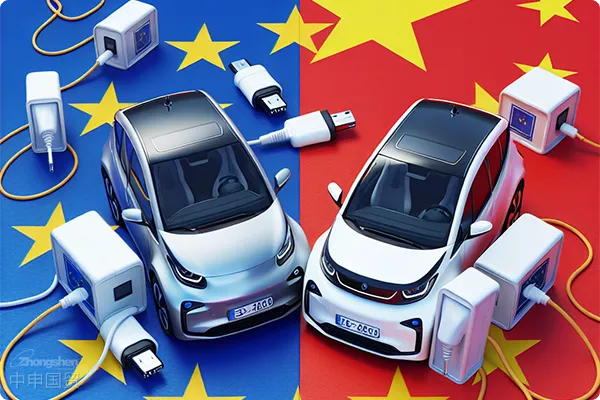- Shanghai Zhongshen International Trade Co., Ltd. - Two decades of trade agency expertise.
- Service Hotline: 139 1787 2118
As expected, on the issue of whether the European Commission should impose tariffs on Chinese-made electric vehicles, Germany abstained from voting, Italy and Spain expressed support, while some EU member states remain undecided.

Positions of EU member states
On July 15 local time, 27 EU member states expressed their positions on the plan to impose tariffs on Chinese electric vehicles. Reuters reported that Germany has not yet decided, meaning it effectively abstained from voting, while Sweden plans to abstain. Sources revealed that Italy voted in favor, and Spain is expected to express support in written comments.
This vote is non-binding, and countries may change their positions in the formal vote this autumn. However, the current position statements from member states may influence the European Commissions final conclusion.
Reuters noted that some EU countries remain hesitant. Polands Ministry of Development stated that inter-ministerial consultations are ongoing to determine their stance. As of July 13, Greece had not indicated its position. Previous reports identified France as a strong supporter of the EUs decision, while Hungary condemned it.
The European Commissions tariff decision
On July 4, the European Commission issued a document announcing that from July 5, temporary countervailing duties of up to 37.6% would be imposed on electric vehicles imported from China, with a maximum duration of four months. During this period, EU member states will vote on whether to formally impose five-year countervailing duties on Chinese electric vehicles. To block this decision, opposition votes from 15 of the 27 EU member states representing 65% of the EUs total population are required.
Comparison of U.S. and EU tariffs on China
The British Broadcasting Corporation (BBC) reported that the EUs announcement of tariff increases came after the bold move by the United States in May this year to raise tariffs on Chinese electric vehicles to 100%. Compared to the U.S., the EUs pace of tariff increases has not been swift. On one hand, the U.S. treats trade with China as a national security issue, while the EU views it as a purely trade matter. On the other hand, the politically divided U.S. has shown surprisingly consistent attitudes toward China, whereas the EU is deeply divided internally on its relationship with China, especially after Brexit, with Germany and France leading the EU.
These differences provide room for Sino-European negotiations. Julian Hinz, Director of the Trade Policy Research Center at the Kiel Institute for the World Economy, stated in an interview with German public broadcaster ARD that Chinas announcement on July 10 regarding whether the EUs countervailing investigation constitutes a trade barrier was actually a cooling measure. Hinz noted that Chinas initiation of an investigation in compliance with World Trade Organization (WTO) rules is its legitimate right, demonstrating that China is acting in accordance with WTO regulations. The countermeasures announced by China may affect some European companies but do not target more critical industries, indicating Chinas willingness to negotiate.
Prospects for China-EU electric vehicle negotiations
Dominique Turpin, European Dean and Professor of Marketing at CEIBS, wrote in the South China Morning Post on July 14 that the pro-business signals now being sent by Beijing will help navigate the difficult electric vehicle negotiations with Europe. It is in everyones interest for China to continue maintaining strong and open economic interactions with the rest of the world. Turpin predicted that, influenced by geopolitical dynamics, the negotiations between China and the EU on electric vehicles will undergo multiple twists and turns before a final outcome is reached. If a satisfactory solution is not found, the electric vehicle dispute between China and the EU could subject the WTOs role to unprecedented scrutiny and pressure.
Overall, the internal divisions within the EU over imposing tariffs on Chinese electric vehicles reflect differing considerations among member states regarding economic interests and diplomatic strategies. In the coming months, all parties will continue consultations, hoping to find a solution that balances their respective interests with international rules. This process is not only about Sino-European electric vehicle trade but could also have profound implications for the global trade system.
Related Recommendations
? 2025. All Rights Reserved. Shanghai ICP No. 2023007705-2  PSB Record: Shanghai No.31011502009912
PSB Record: Shanghai No.31011502009912










